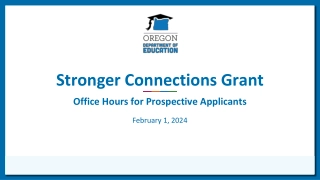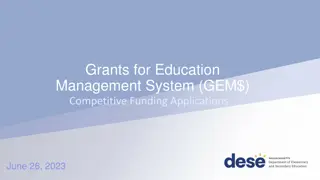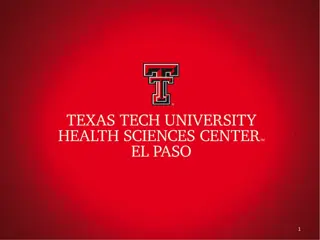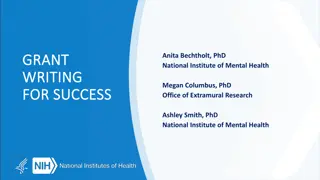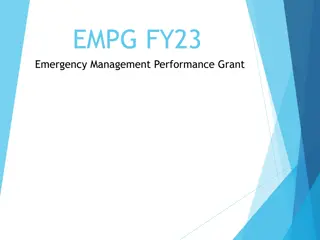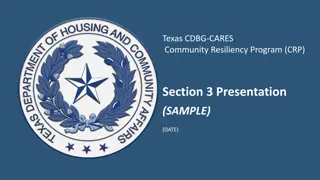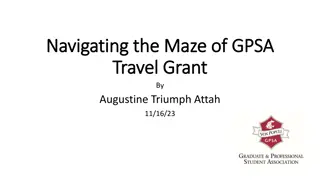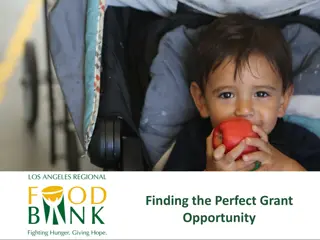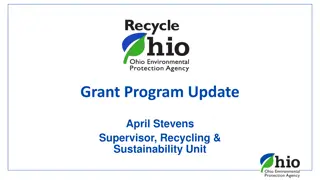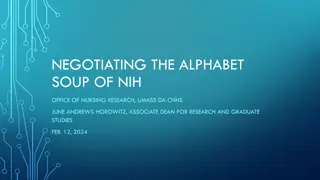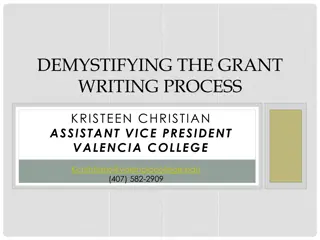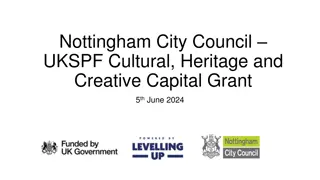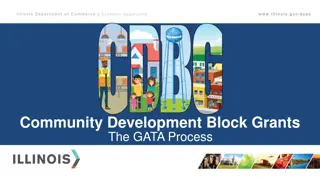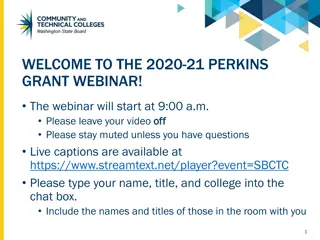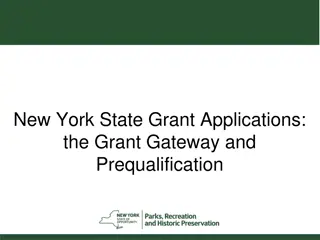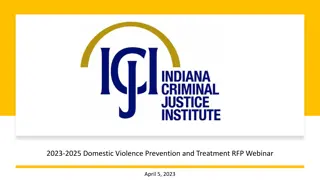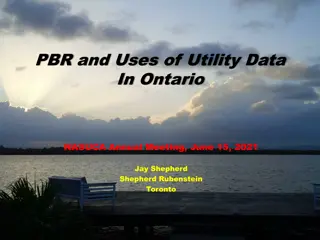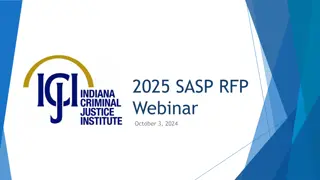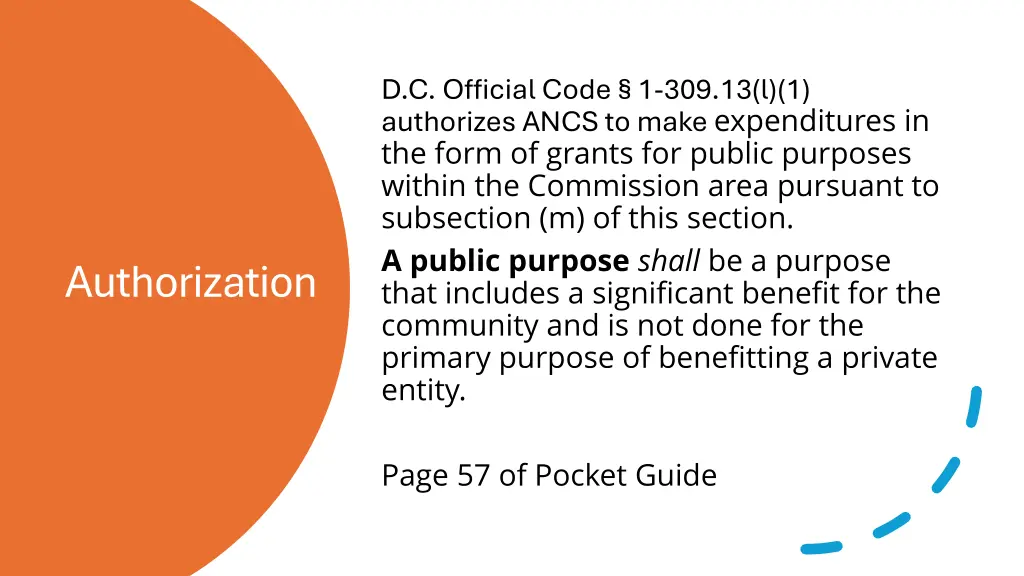
Understanding ANCs Grant Expenditures for Public Purposes in D.C.
Learn about the authorization and requirements outlined in the D.C. Official Code for ANC grants, focusing on public purposes that benefit the community, grant application processes, and expenditure restrictions. Explore the significance of public purposes, community benefits, and limitations on expenditures for food and entertainment. Stay informed on the updated guidelines and criteria for ANC grants in the District of Columbia.
Download Presentation

Please find below an Image/Link to download the presentation.
The content on the website is provided AS IS for your information and personal use only. It may not be sold, licensed, or shared on other websites without obtaining consent from the author. If you encounter any issues during the download, it is possible that the publisher has removed the file from their server.
You are allowed to download the files provided on this website for personal or commercial use, subject to the condition that they are used lawfully. All files are the property of their respective owners.
The content on the website is provided AS IS for your information and personal use only. It may not be sold, licensed, or shared on other websites without obtaining consent from the author.
E N D
Presentation Transcript
D.C. Official Code 1-309.13(l)(1) authorizes ANCS to make expenditures in the form of grants for public purposes within the Commission area pursuant to subsection (m) of this section. A public purpose shall be a purpose that includes a significant benefit for the community and is not done for the primary purpose of benefitting a private entity. Authorization Page 57 of Pocket Guide
Authorization continued D.C. Official Code 1-309.13(m) provides: A grant may not be awarded unless the grant is awarded pursuant to a vote of the Commission at a public meeting following the public presentation of the grant request. A Commission may approve grants only to organizations that are public in nature and benefit persons who reside or work within the Commission area. The services provided by the grantee organization must not be duplicative of any that are already performed by the District government. Page 60 of the Pocket Guide
Requirements The DC Official Code sets requirements for: The expenditure (Grant or Direct Expenditure for Public Purpose); The application; and What is to be reported with the Quarterly Financial Report. The expense itself, not just the event, must be of a permissible nature as outlined in the D.C. Official Code and Federal requirements.
Public Purpose --a purpose that includes a significant benefit to the community. Must benefit persons who live and work in the Commission area Not done for the primary purpose of benefitting a private entity. Services must not duplicate those already performed by the District Government. In the case of a grant, it must be to an organization. No Commission shall provide a grant for which the grantee estimates that the overhead costs would exceed 15% of the entire grant amount. The expense itself must be of a permissible nature. Grant or Direct Expenditure Requirements
Direct Expenditure Restrictions ANCs may not make direct expenditures for public purpose on: Food. The DC Code restricts expenditures on food to $100 for ANC meeting snacks. As noted later, in some cases grantees may spend on food. D.C. Official Code 1-309.13(l)(1) p.57 Entertainment. Federal restrictions prohibit direct expenditures on entertainment. A grantee may spend on entertainment.
This changed last summer (2024). It previously required a benefit to the Community as a whole. What is a significant benefit? It is something public, like plantings, a festival, or a work of art that residents can enjoy or take part in. The recipient group cannot be very small. For example, a grant that benefits only 8-10 residents likely does not represent a significant benefit. There can be a limit on recipients if the opportunity is made available to everyone in the ANC. Public Purpose Public Purpose -- -- a purpose that includes a significant that includes a significant benefit to the community. benefit to the community. a purpose
Halloween parties (with candy) Movie nights Flower plantings. One ANC does this as a direct expenditure and puts it in the budget every year. Uniforms or sports equipment for a team that will be used from year to year (as opposed to personalized uniforms) Examples of Public Purpose Festival support, Columbia Heights Day, Christmas Tree lighting, Day of the Dead festival, Art all night, support to organizations distributing holiday food, Soldiers Home events, MLK parade and Eckington Day. Permissible things for festivals include table, chair, stage and equipment rental. Bounce houses and foam generators are permissible. T-shirts and food for volunteers are not permissible. PTOs (Parent Teacher Organizations) have applied for support for robotics challenge, science kits for an entire grade, outdoor learning space things that benefit a large swath of students at that school. Library --a library had an outdoor reading space they were raising funds for. DCPL verified that this was not something in their budget nor was it anticipated it would ever be in their budget. A heritage event in SE where they assisted residents in searching their genealogy and had other supplemental services. Farmer s Market food education program which included food preparation classes. Seed packet distribution when the packets were made available to anyone in the ANC on a first come basis.
Does not mean the event has to happen within the ANC, an event in close proximity to the ANC that residents will participate in or through the PTO of a school where a significant number of residents attend. Benefits Self explanatory. those who live and work in the ANC Events or activities of a city-wide nature are not considered to benefit those who live and work in the ANC. A recent example is a city-wide tenant event. There is no charge for attendance.
Not done for the primary purpose of benefitting a private entity. Expenses for clothing and school supplies for coat drives and school supply drives. These are considered expenses that benefit individuals. Support for the event such as tent, table and chair rental would be permissible. Something that benefits a very small number of people. Expenses related to the operations of an organization. Recent examples are requests to provide computers or website redesign to a non-profit. That primarily benefits the organization, not the community.
Services not duplicating those already performed by the District Government. It is considered a duplication if D.C. has budgeted for the item or is required to do it. An example is the repainting of a school auditorium. DGS had it scheduled but not for another 5 years. Services that have been suspended by the City or are no longer performed are permissible. Examples are in the 1980s when the city suspended bulk trash, ANCs were allowed to set up a collection. An ANC funded an outdoor reading area through a library Friends group. DCPL verified this was not provided in their budget. ANCs have purchased tools for cleanups in the winter months when the Helping Hands tool lending is not available.
Grant must be to an Organization Grants must be made to an organization, though the organization does not have to be incorporated. The organization must be public in nature, usually interpreted to mean not for profit. Organizations without bank accountssuch as some clean up and planting organizations or block parties will need a fiscal sponsor to whom the check is made. Main Streets, District Bridges, non-profits and businesses (usually for block parties) have served as fiscal sponsors. Some ANCs have an internal requirement that the organization be a 501(c)(3), though this is not a Code requirement.
No Commission shall provide a grant for which the grantee estimates that the overhead costs would exceed 15% of the entire grant amount. Overhead for purposes of a grant application are indirect costs. Ones that cannot be directly attributed to the project but are instead related to the cost of the organization, such as a portion of their staff salary or office expenses. This rarely comes up and is usually worked out with the organization at the OANC review. Occasionally applicants confuse the cost of the event with overhead and is worked out in the review process. Overhead
The actual expenditure by the ANC or a grant recipient must be a permissible expense as outlined in the D.C. Official Code and Federal rules found in the Redbook which is formally called The Principles of Federal Appropriations Law, Third Edition. The expense itself must be permissible
Some expenses are impermissible per the D.C. Official Code or Federal restrictions on spending. Travel outside of the Washington Metropolitan area is not permissible. D.C. Official Code 1- 309.13(l)(2). Page 58 of the Pocket Guide. Expenses that benefit individuals. This includes T-shirts and meals to volunteers at events, backpacks, coats or other clothing. Enhancements to private property or the public parking under the control of an adjacent landowner. Direct expenditures for food or Entertainment by an ANC. D.C. Official Code 1-309.13(l)(1) and the Redbook. Impermissible Expenses.
Permissible Expenses Entertainment for a large group such as street festival, movie rental for movie night, bounce houses, foam generators. Table, chair, tent and equipment rental. Porta-potties Uniform and sports equipment for teams where it will be used from year to year. This does not include personalized uniforms. Flowers and bulbs for neighborhood plantings in public space. Farmers Market food preparation Supplies for workshops such as food preparation education. In certain circumstances, food.
Food? This is a change. The OANC has recently modified its policies for grant reviews when food expenditures are part of grant requests. The OAG has also modified its position based upon guidance in the Redbook and a change in DC Law. This policy was attached to the link and is on the OANC website at Policy for Reviewing Grants with a Food Component Grants still must meet all the other criteria when being evaluated and does not mean direct food aid is permissible.
Food is inherently something that is consumed by and individual. In evaluating grants, the factors that the OANC looks at are: Evaluating Grants With a Food Component Is the primary or a significant expense of the grant for food given to individuals? In this case the primary beneficiaries are individuals. Is the ANC money primarily being used to purchase food or to support non-food supplies such as table and chair rental? Is the grant being used for a full meal? A full meal is a benefit to the individual and not the community.
Food Continued Is it open and available to everyone in the ANC? Is it open and available to everyone in the ANC? Is the event where candy may be distributed or chicken wings given out available to anyone in the community or is it limited to a particular population (volunteers) or geography such as a block party for only persons on the block? This does not mean that there has to be enough candy at a Halloween event for everyone in the ANC, just that everyone in the ANC would have the same opportunity to avail themselves of it before it runs out, or the block party is open to the whole ANC even though the likely attendees are only going to be immediate neighbors.
Food Continued 2 Can the food be severed from the event and the event still happen? Can the food be severed from the event and the event still happen? Most Halloween and community events can happen without the food and the benefit to the community is not in the food but the event. Is there a compelling argument that food improves the grant objective and is a Is there a compelling argument that food improves the grant objective and is a substantial benefit to the community? substantial benefit to the community? Halloween events and film events promote safety by having fun activities in a controlled environment. They also help to build neighborhood cohesion by bringing neighbors together in a collegial environment. A little candy or popcorn available to everyone makes the event just a little bit nicer but is not the primary purpose of the grant and may assist in bringing more neighbors to the event.

